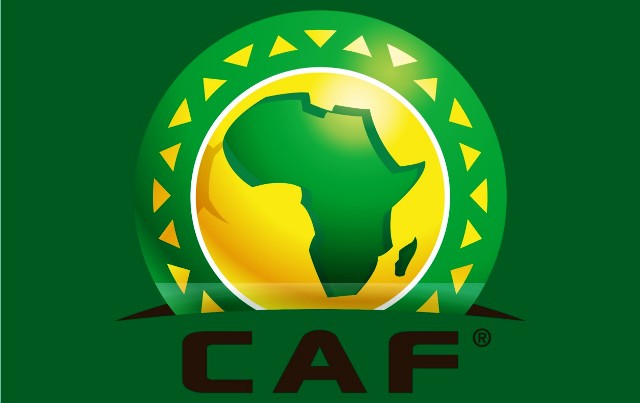Opinion
CAF And The New Dawn

The Confederation of African Football (CAF) witnessed a new dawn with the emergence of Madagascar Football Association boss, Ahmad Ahmad, as president of the soccer body. The election exited Issa Hayatou, a Camerounian, who had been in the saddle for about 29 years.
Like the desire for political change, Ahmad’s election indicates the deep yearning for change from Hayatou’s near uneventful 29 years rule. Some of those who wanted this change predicated it on the need for fresh ideas in the continent’s football governing body.
Ahmad’s victory has therefore heightened expectations and hope that henceforth things would be done differently in line with his campaign promises. Consequently, prospects are high for a brand new CAF.
He has promised sweeping reforms in the affairs of CAF. Of course, no less is expected of him. To prove his seriousness, he indicated moves to call a CAF executive committee meeting, the highest decision-making organ of the body, to deliberate and adopt his reform agenda.
This is a laudable move which deserves commendation because it will democratise the apex soccer body in the continent. In fact, it is one of the things CAF needs in order to be reckoned with globally.
Also, his promise to return football to stakeholders and owners will give unfettered access to football administration in the continent. This will end the situation where the running of football in Africa involves only a limited number of ex-players who attained the zenith of their career.
The practice, however, is different elsewhere, especially in Europe, where former players are really involved in the running or administration of the round leather game to attain remarkable successes.
It was crystal clear that Hayatou’s ouster from his exalted position was already anticipated long before the election took place. Accordingly, some theories have been adduced as explanations for his lose.
There are football analysts who think strongly that the Camerounian lost because he worked against the emergence of the new FIFA President, Giovanni Infantino. I agree with this claim. It isn’t a secret that the FIFA boss was very active in the behind-the-scene activities that extruded Hayatou from his position.
But I also agree with others who think that Hayatou lost following his long stay in office which led to a declining performance. The truth is that his exit emanates from a combination of both factors. However, the reason for his catastrophic failure at the polls is not as important as the obvious truth that he is no more. I am elated.
But I am more elated at the role Amaju Pinnick played in delivering Hayatou’s coup de grace against a federal government directive to act otherwise. He did it wisely and in a classical manner. As President of Nigeria Football Federation, NFF, he correctly read the handwriting on the wall and quickly aligned himself and the nation with the change mantra.
For this reason, the foresighted and smart Pinnick was rewarded with his election into the CAF executive committee, a position which only late Orok Oyo and embatled Amos Adamu have occupied. Neverheless, the NFF president has no option but to be a worthy and good representative of the country.
Hayatou wasn’t a total failure, after all. Despite his unexpected ouster and long stay in office, he attained moderate achievements. He gradually improved Africa’s slot in the World Cup from one to five. Then he aligned the Africa Nations Cup calendar with FIFA’s odd year demand to avert the clash with the World Cup, the highest global football tournament.
Not done, he introduced the CHAN Nations Cup for home-based players and the Women’s Nations Cup as well. Those were indeed worthy achievements, but I believe a lot more has to be done to move Africa’s football forward.
Ahmad needs to bring this change and transparency badly needed to enhance the face of football in Africa. He has to be creative and shore up our football in all ramifications. Though coming from a country relatively known for strong footballing tradition, his ability to deliver is never in doubt.
His election, happening before Russia 2018 World Cup and its planned expansion of participation from 32 to 46, should count for much. The CAF president has to work with his CAF executive committee members to get the most number of additional slots possible for Africa.
Finally, Ahmad must watch against undue tenure elongation which has become an albatross around the neck of those who occupy the position. But quite amazingly, he seemed to understand this danger even before he was elected. Hear him:
“I don’t even know if I will do a second mandate, but three mandates, it is impossible. I will not. I love my life and I will focus on the current term. I will respectfully try to keep my promise of changing things in the management of African football.”
Great! But quite unAfrican. Sadly, Hayatou fell on this slippery ground.
Arnold Alalibo
Opinion
NDDC: Time To Illuminate Homes

Opinion
When Democracy Becomes Too Expensive

Opinion
Righteous Leadership Still Thrives

-
Politics2 days ago
2027: NIGERIANS FAULT INEC ON DIGITAL MEMBERSHIP REGISTER DIRECTIVE
-

 Environment3 days ago
Environment3 days agoLAWMA Director Says Sweeping Reforms Have Improved Waste Collection
-
Politics2 days ago
LP Crisis: Ex-NWC Member Dumps Dumps Abure Faction
-

 Politics2 days ago
Politics2 days agoUmahi Dismisses Allegations On Social Media, Insists On Projects Delivery
-

 Sports2 days ago
Sports2 days agoAbia Not Sure To Secure continental Ticket
-
Sports2 days ago
La Liga: Yamal Records First Career Hat-trick
-
Politics2 days ago
NATASHA ELECTRIC VEHICLES INITIATIVE IN KOGI CENTRAL
-
Politics2 days ago
IT’S A LIE, G-5 GOVS DIDN’T WIN ELECTION FOR TINUBU – SOWUNMI

